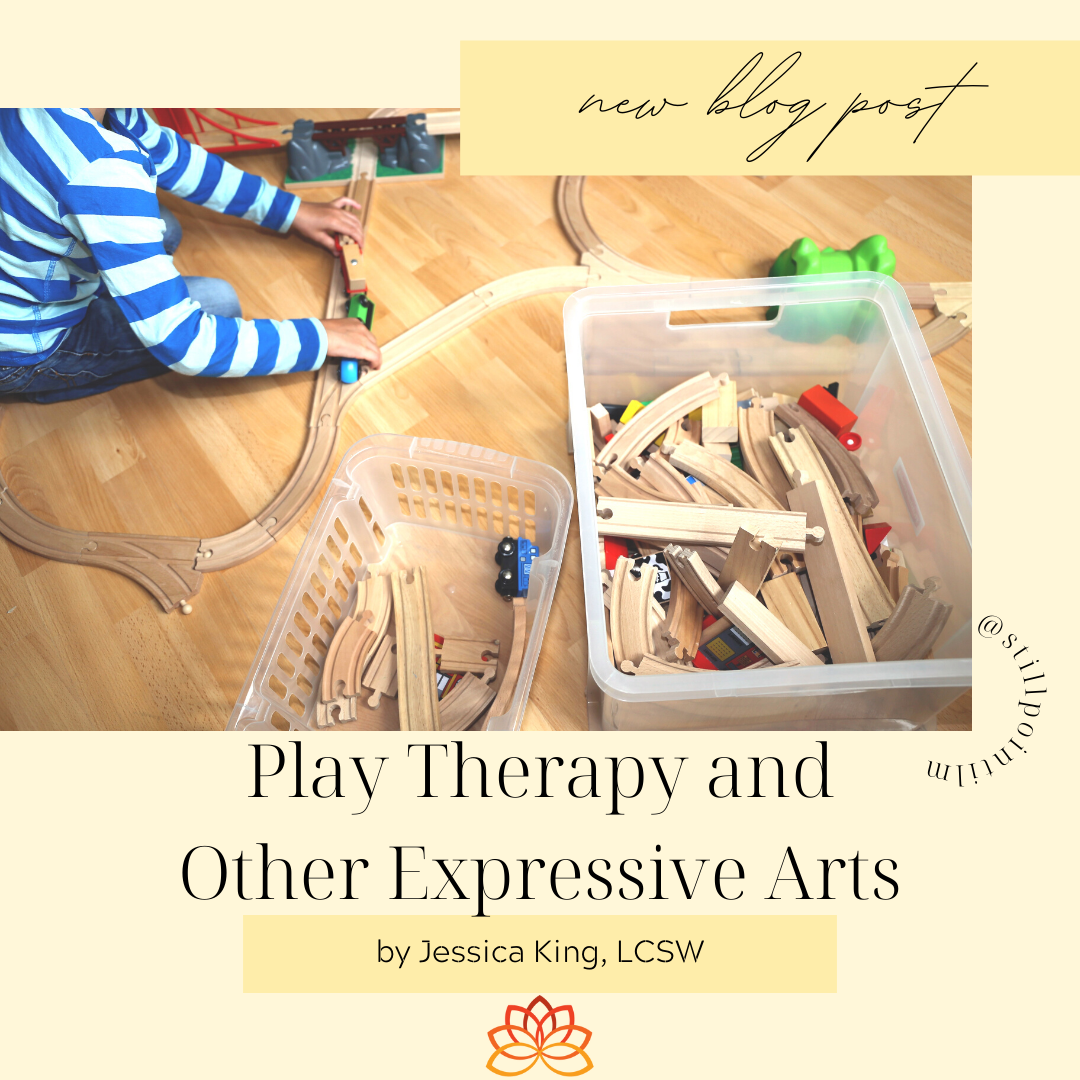Play Therapy and Other Expressive Arts
Play is the language of children. Play is how they express themselves, how the process the circumstances of their life, and how they often communicate best with others. In play therapy, the therapists primary goal to to allow the child to been seen, heard, and understood in order to enhance their ability to connect with others and regulate their emotions. By increasing the ability to regulate emotions, children can make better behavioral choices, express themselves effectively, and build healthy relationships.
What is Play Therapy?
Play therapy refers to a large number of treatment methods, all applying the therapeutic benefits of play. Play therapy helps children to address and resolve their own problems, and builds on the natural way that children learn about themselves and their relationships in the world around them.
APT defines play therapy as the “systematic use of a theoretical model to establish an interpersonal process wherein trained play therapists use the therapeutic powers of play to help clients prevent or resolve psychosocial difficulties and achieve optimal growth and development.”
What does Play Therapy help?
Play therapy helps children:
* Become more responsible for their behaviors and develop more successful strategies
* Develop new and creative solutions to problems
* Develop respect and acceptance of self and others
* Learn to experience and express emotion
* Cultivate empathy and respect for thoughts and feelings of others
* Learn new social skills and relational skills with family
* Develop self-efficacy and a better assuredness about their abilities
Who does Play Therapy and what do they do?
Licensed psychotherapists who have specialized training in play therapy are who utilize play therapy as a modality. Typically play therapists will want to do an initial assessment with information gathered from the caregiver, as well as observing the child with the caregivers and alone. Ongoing a play therapist will work one-on-one with caregivers to make sure they have the resources to parent effectively at home between sessions. Additionally, a play therapist will meet individually with the child. These sessions can look different depending on the tools and play objects offered. This could include use of a sand tray, action or other play figures, play houses, blocks or puzzles, or any other materials that engage the child in play in a way that allows self-expression.
Other expressive arts therapy:
There are other ways to engage children in expressive, creative ways. The use of these is dependent on the child’s interests, age, developmental stage, and personality. Some of these include art therapy, music therapy, and dance/movement.
If you’re interested in learning more about play therapy and how it can help your child grow, please contact us today so we can schedule an appointment. We have providers that can help you and engage your child in expressive arts that help them grow!

home
meet the team
therapy
employee wellness
groups & Workshops
yoga
locations
3001 Wrightsville Avenue., Suite B
Wilmington NC 28403
5106 Wrightsville Avenue
Wilmington NC 28403
phone number
(910) 769-6360
fax number
(910) 338-0172